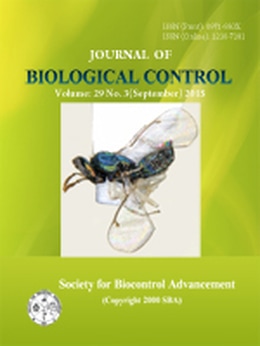 Antifungal effects of compost tea microorganisms on tomato pathogens Biological Control 2015 Link Here It is becoming well documented that Compost Tea has fungicidal properties, and that those properties come by way of the microbes in the tea. Canadian agricultural scientists wanted to see which microbes were the most effective in control of two different tomato diseases, Botrytis and Alternaria. To do this, the research team identified 4 different bacteria known for having anti-fungal effects in a sheep manure compost tea (Advenella incenata, Aminobacter aminovorans, Bacillus subtilis, and Brevibacterium linens). The scientists were able to isolate the microbes, and then they ran several experiments with them. In one experiment, the scientists simply grew the microbes on petri-dishes, and then placed actively growing fungal pathogens on the same dishes. They then looked to see how much the fungal hyphae were able to grow. They saw that the bacteria Brevibacterium linens and Bacillus subtilis were able to prevent fungal hyphae from growing at a rate three times that of the control. In another experiment, the scientists took tomatoes, poked holes in them, and inserted either Botrytis or Alternaria spores, and then immediately following washed the wound with a solution containing B. linens and B. subtilis, individually and combined. The results showed that the combination of B. linens and B. subtilis worked significantly better than using the two microbes individually. They also tested spore fungal spore germination, which was also reduced better by the combination of the two beneficial bacteria. This leads one to conclude that biological diversity in a rich compost tea is reason for the improved fungicidal effects.
0 Comments
Your comment will be posted after it is approved.
Leave a Reply. |
Archives
June 2024
Categories
All
|
Contact Us
Why TeaLAB?TeaLAB is committed to helping people and their gardens to become more self- sufficient, healthier, and productive. Grow your sweetest corn, your biggest watermelon, your tallest quinoa, your tastiest tomato, and your happiest you.
TeaLAB was founded to teach people how to garden organically, so that we can become more closely connected with the land. Our goal has been to simplify growing methods so that gardeners have a positive experience in the garden. TeaLAB is where the garden meets the laboratory. From around the world and into your backyard, our products contain ingredients that are sourced both locally and globally. Using methods both ancient and cutting edge, TeaLAB promotes maximum biology. Grow with TeaLAB. |

 RSS Feed
RSS Feed
